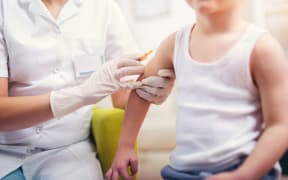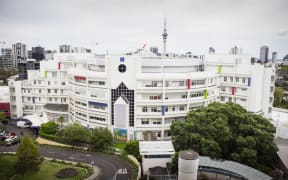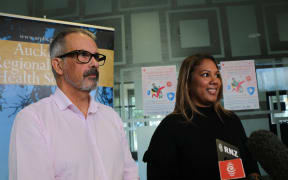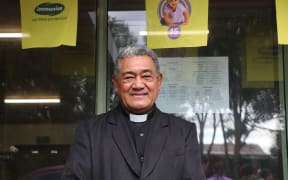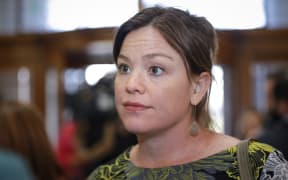Auckland public health authorities say they are not yet asking unvaccinated college students to stay at home following a ball in the city on Saturday.
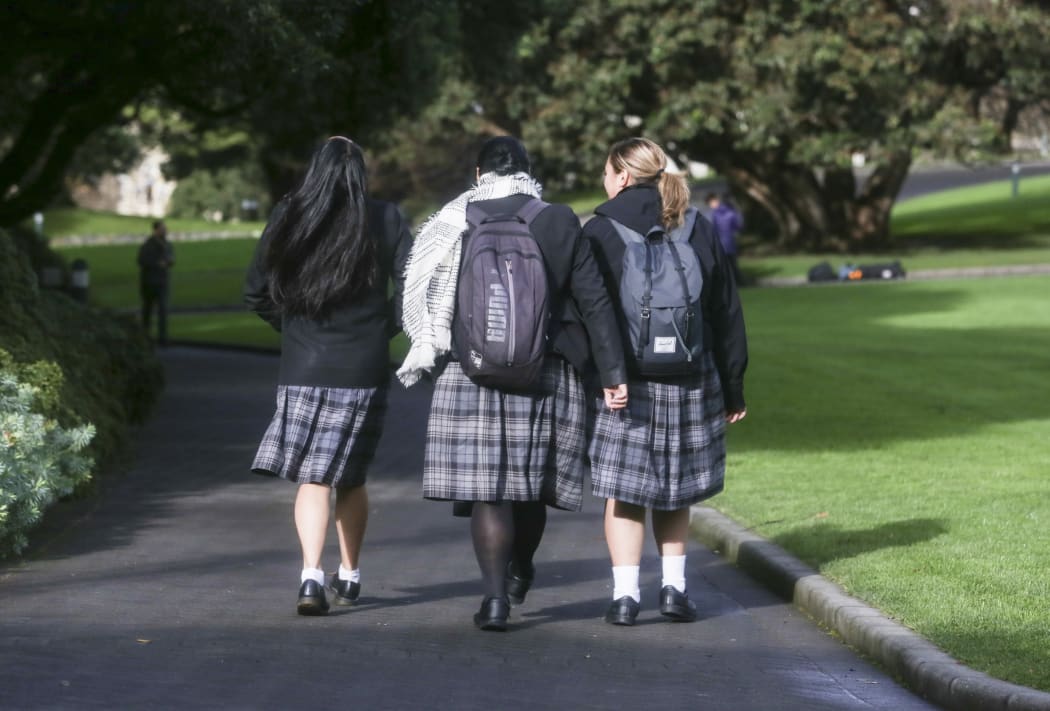
Photo: RNZ / Richard Tindiller
The New Zealand Herald has reported that more than 20 Auckland secondary schools have been notified after a student was found to have measles after attending a ball at St Peter's College on Saturday.
St Peter's College principal James Bentley told the Herald he had asked parents at his college to keep their sons at home during the contagious period, from 9 to 16 September, if they have not been vaccinated against measles.
But a medical officer of health William Rainger said the Auckland Regional Public Health Service (ARPHS) did not yet have a laboratory confirmation that the student who attended the ball had measles.
"I think schools have been proactive in terms of giving their families a heads up - and that's possibly been misinterpreted," he said.
The service added: "At this point, the medical officer of heath is not asking that unvaccinated students stay home."
ARPS said more than 50 schools in the region had reported cases of measles this year and it was continuing to work with the Ministry of Education to help schools manage cases.
It is encouraging school students, as well as everyone up to the age of 50, to check their immunity. "We are concerned about those in the region who are not vaccinated. And of this group it is the children and those who have weakened immune systems who are most at risk of complications from measles."
Dr Rainger urged parents to ensure they did not delay getting children vaccinated at 12 months and four years, and to make sure older children are vaccinated now if they have missed out.
Adults under 50 also need to check they are immune by looking at Well Child or Plunket books, or checking with their doctor. "If you are not sure, or can't find your records, get vaccinated."
Dr Rainger said people also should watch out for symptoms - a fever, runny nose, cough and sore red eyes, with a rash following a few days later. People should also phone ahead before visiting a clinic.
At a press conference this afternoon he said the rate of measles in Auckland was increasing at around 18 to 19 per day.
"Measles is a preventable disease - it is preventable by vaccination, vaccination is safe."
But despite the highly contagious nature of the illness, Dr Rainger said special orders that would allow him to shut down public gatherings were not yet necessary.
"In terms of using legislative powers to stop events taking place, I think we are a long way off that.
"This is a large scale outbreak in Auckland and it needs to be taken seriously - but life goes on," he said.
And he was confident that the situation would improve.
"With good vaccination outreach and the message getting out about outreach, there's every chance the rate in Auckland will slow and we will reach a plateau and then we'll be on the downside of it.
"I can't predict when that's going to be - the answer lies with people who are not vaccinated, getting vaccinated," he said.
Separately, National's associate health spokesperson, Whangarei MP and GP Shane Reti said pharmacists in Northland wanted to help out by administering the measles vaccine to people.
"Up to a quarter of pharmacists in my local region of Northland are vaccination-qualified and in times of a serious outbreak such as this, we should be making use of that resource," he said.
He added qualified pharmacists were able to deliver the flu vaccine but were not reimbursed for vaccines such as MMR for measles.
Dr Reti said district health boards had "portable cold chain storage containers available for pharmacies that need more space to keep vaccines at the right temperature".
He said there was no reason not to allow pharmacists to administer measles vaccinations.

